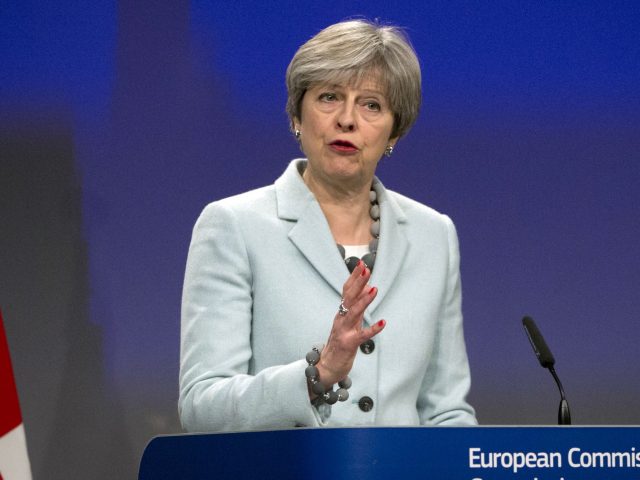
EU citizens are “still in the dark” about their right to remain in the UK after Brexit despite protections promised in the Government’s deal with the union, according to campaigners.
Prime Minister Theresa May hailed the guarantees for the more than three million EU citizens living in the UK, saying they could carry on as normal, and David Davis, the Brexit Secretary, said they could be “confident” of their rights.
But campaign group the3million, which represents EU nationals in the UK, said the agreement between negotiators from the Government and the union was a “flawed compromise” and many people were uncertain over whether they would qualify for the new “special status” to be implemented post-Brexit.
We are not reassured – this is our official reaction to #BrexitDeal https://t.co/ObHn3qtigJ pic.twitter.com/6VhHmxQ9j2
— the3million (@The3Million) December 8, 2017
They said there were concerns about the “special status” provision and the limited oversight of the European Court of Justice, whose authority UK courts can consult with over rights disputes for eight years after withdrawal.
Nicolas Hatton, chairman of the3million, said: “Our rights should not have an expiry date. More worryingly, there is still no clarity around the registration criteria for these rights.
“There are a huge number of people still in the dark about whether they will qualify or not. Hundreds and thousands of them might get a letter that they have to go.”
The European Parliament’s Brexit co-ordinator Guy Verhofstadt suggested the final divorce deal will only meet European parliamentary approval if certain conditions were met, including that UK residents retained freedom of movement.
#Brexit #citizensrights 1)All rights & benefits covered 2) No more"settled status"3)Direct effect in UK law 4)ECJ binding. But withdrawal agreement for EP only if 1)Also for future partners covered 2)One cost-free declaration per family 3)Free movement of UKresidents in whole EU
— Guy Verhofstadt (@guyverhofstadt) December 8, 2017
A joint report published by the EU Commission on Friday outlined that EU citizens in the UK will be allowed to continue to live, study and work under the same conditions as current EU law.
Negotiators also pledged that Britain’s finalised divorce deal will protect the rights of those who are yet to be granted permanent residency in the UK so that they can still acquire it after withdrawal.
The deal will include reunification rights for relatives, including spouses, parents, grandparents, children and grandchildren, who do not live in the UK, to join them in the future and will extend to future spouses or partners of EU citizens even if they are not yet together as of the end of any transitional period after withdrawal.
The guarantees outlined in the document will also apply to UK citizens living in countries within the union.
 Prime Minister Theresa May during a news conference in Brussels (Virginia Mayo/AP)
Prime Minister Theresa May during a news conference in Brussels (Virginia Mayo/AP)
Announcing the breakthrough, Mrs May said: “The deal we’ve struck will guarantee the rights of more than three million EU citizens living in the UK and of a million UK citizens living in the EU.
“EU citizens living in the UK will have their rights enshrined in UK law and enforced by British courts. They will be able to go on living their lives as before.”
Mr Davis said: “Citizens can now be confident about the rights they enjoy. We should now move forward to discuss our future relationship with the EU on issues like trade and security.”
The document said the deal had agreed “important substantial” rights.
It said: “The common understanding reflected in the joint report means that both Union citizens and United Kingdom nationals, as well as their respective family members, can continue to live, work or study as they currently do under the same conditions as under Union law, benefiting from the full application of the prohibition of any discrimination on grounds of nationality.”


Why are you making commenting on The Herald only available to subscribers?
It should have been a safe space for informed debate, somewhere for readers to discuss issues around the biggest stories of the day, but all too often the below the line comments on most websites have become bogged down by off-topic discussions and abuse.
heraldscotland.com is tackling this problem by allowing only subscribers to comment.
We are doing this to improve the experience for our loyal readers and we believe it will reduce the ability of trolls and troublemakers, who occasionally find their way onto our site, to abuse our journalists and readers. We also hope it will help the comments section fulfil its promise as a part of Scotland's conversation with itself.
We are lucky at The Herald. We are read by an informed, educated readership who can add their knowledge and insights to our stories.
That is invaluable.
We are making the subscriber-only change to support our valued readers, who tell us they don't want the site cluttered up with irrelevant comments, untruths and abuse.
In the past, the journalist’s job was to collect and distribute information to the audience. Technology means that readers can shape a discussion. We look forward to hearing from you on heraldscotland.com
Comments & Moderation
Readers’ comments: You are personally liable for the content of any comments you upload to this website, so please act responsibly. We do not pre-moderate or monitor readers’ comments appearing on our websites, but we do post-moderate in response to complaints we receive or otherwise when a potential problem comes to our attention. You can make a complaint by using the ‘report this post’ link . We may then apply our discretion under the user terms to amend or delete comments.
Post moderation is undertaken full-time 9am-6pm on weekdays, and on a part-time basis outwith those hours.
Read the rules here